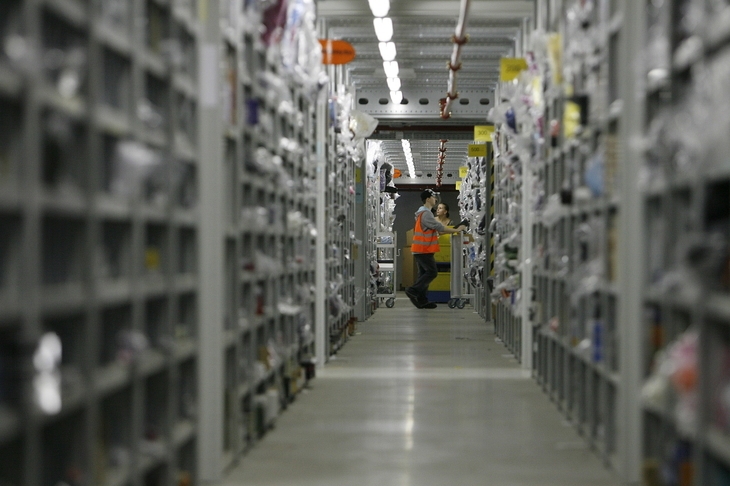I know the Guardian is desperate to stop Brexit and will dredge up anything to try to back its case – daily running fanciful predictions of economic Armageddon made by think-tanks as if they were fact, even though those same think tanks have been hopelessly wrong in the past. But honestly, there comes a point when even the newspaper’s editors must be beginning to realise that their demented doom-mongering is making them look ridiculous.
This week the Office of National Statistics (ONS) put out figures showing yet another decline in the number of days lost to sickness by British workers. It is now down to an average of 4.1 days per annum compared with 7.2 days in 1993. Surely that is just one speck of brightness in the stygian sewer that is neo-conservative, xenophobic, racist, homophobic, Brexit Britain?
But not a bit of it. Over the past 24 hours, the Guardian website has carried at least three pieces claiming – if you haven’t already guessed – that the decline in sick days is all down to a exploited Dickensian workforce being too scared to pick up the phone and inform their employer that they are too ill to come to work. James Bloodworth, who briefly worked at an Amazon distribution centre so he could write about the evils of it all, says that while he was there workers would be given a disciplinary point if they took a day off sick and claims he was told, along with other workers on his first day, that they would “just have to self-medicate because we [Amazon] need you here”. He goes on to report that other employees on zero-hours contracts have told him: “if you turned down a shift because you were ill, chances were that you wouldn’t be offered it again.”
I can’t speak for Amazon, but workers on zero-hours contracts make up only 2.8 per cent of the UK workforce. A further 15 per cent are self-employed – some of whom, but far from all, are on the kind of contracts which Bloodworth goes on to describe. How such a small proportion of the workforce could be responsible for nearly halving the sickness rate among British workers defeats me. In fact, as the ONS data shows, the decline in absence rate can be seen right across the economy. Indeed, the fastest rate of decline in worker sickness absence over the past 25 years has been in the public sector.
There is, of course, an alternative explanation for the decline in sickness absences: that we are getting healthier. The downwards trend is what you would expect given the decline in smoking, the general increase in longevity and the vast improvements in the management of chronic medical conditions such as diabetes. Again, the ONS data shows an especially sharp decline in absentee rates among people with long-term health conditions. It may also be a factor that fewer of us are doing manual jobs – occupations which used to cause illness, such as coal-mining and asbestos working, have disappeared. Moreover, it is easier to carry on working with, say, a bad back if you have a desk job than if you working in a steelworks.
To be fair to Bloodworth he does acknowledge in passing that ‘some’ of the reduction in sickness rates might be down to better health, but only in an absurd, Guardianesque way. “There has been something of a healthy eating boom among those with disposable income,” he writes, “powered by Instagram and the cultivation of more diverse culinary habits”.
In other words, if a few of us are genuinely getting healthier rather than falling victim to the employment practices of evil capitalists, it is all thanks to those nice migrants inspiring us to greater diversity in our diets. This sort of stuff is becoming beyond parody.







Comments